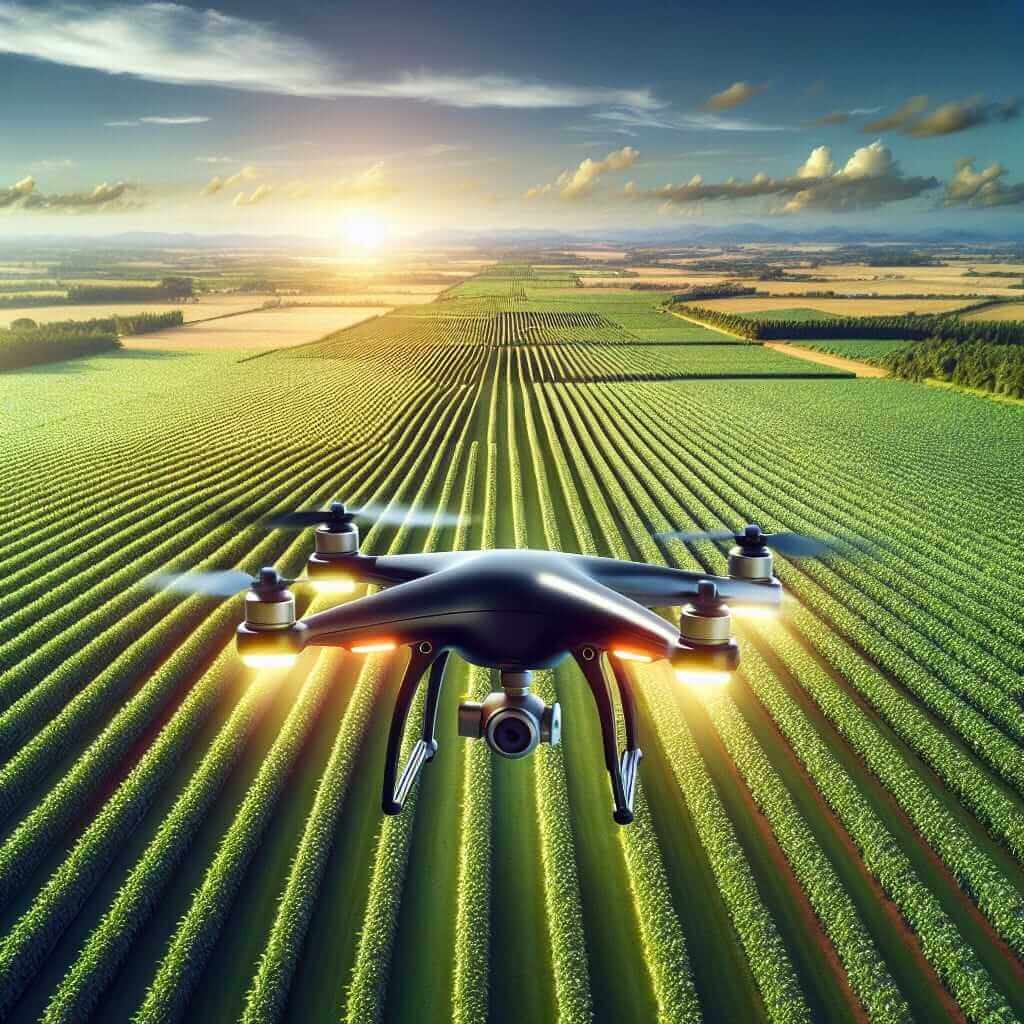As technological advancements continue to shape various fields, agriculture has also embraced innovations to increase efficiency and productivity. One significant innovation is the use of drone technology. This article delves into how drone technology is being utilized in agriculture and offers a comprehensive IELTS Reading practice to help you prepare for the Reading section of the IELTS exam. Given its increasing relevance, the likelihood of encountering topics like this in future IELTS exams is high.
Main Content
IELTS Reading Practice on Drone Technology in Agriculture
Passage
Drone technology has progressively revolutionized various sectors, and agriculture is no exception. Farmers and agribusinesses are turning to drones for an array of tasks that were once time-consuming and labor-intensive. Drones provide significant advantages in crop monitoring, irrigation management, crop spraying, and real-time data collection.
-
Crop Monitoring: One of the primary uses of drones in agriculture is for crop monitoring. High-resolution cameras mounted on drones capture detailed images of crops, allowing farmers to identify issues such as pest infestations, diseases, and nutrient deficiencies early. This early detection enables timely interventions, ultimately leading to healthier crops and improved yields.
-
Irrigation Management: Effective water management is crucial for optimal crop growth. Drones equipped with thermal cameras can assess the irrigation needs of large fields by detecting variations in soil moisture levels. This data helps farmers to apply water more precisely, conserving resources and ensuring that plants receive the necessary amount of water.
-
Crop Spraying: Traditional crop spraying methods can be inefficient and hazardous. Drones offer a safer and more efficient alternative. They can be programmed to spray pesticides and fertilizers with high precision, reducing the amount of chemicals used and minimizing environmental impact. This method not only saves time but also reduces the risks associated with manual spraying.
-
Real-Time Data Collection: Drones provide real-time insights into crop growth and overall farm health. By continuously collecting data, drones enable farmers to make informed decisions quickly. This real-time data collection helps in adapting to changing conditions and implementing necessary measures promptly.
Furthermore, the integration of drone technology with other advanced technologies like artificial intelligence (AI) and the Internet of Things (IoT) is enhancing its applications in agriculture. AI algorithms analyze the data collected by drones, offering predictive analytics and actionable insights, which can significantly aid in farm management.

Questions
Question Type: Matching Headings
-
Section A:
a. Real-Time Data Collection
b. Crop Monitoring
c. Advantages of Thermal Cameras
d. Efficient Crop Spraying -
Section B:
a. Real-Time Data Collection
b. Crop Monitoring
c. Efficient Crop Spraying
d. Integration with AI -
Section C:
a. Crop Monitoring
b. Advantages of Drone Technology
c. Crop Spraying
d. Irrigation Management -
Section D:
a. Real-Time Data Collection
b. Crop Monitoring
c. Efficient Crop Spraying
d. Integration with AI
Question Type: True/False/Not Given
- Drones help in detecting nutrient deficiencies in crops.
- Traditional crop spraying methods are safer than using drones.
- AI algorithms can analyze data collected by drones in real time.
Question Type: Multiple Choice
- Which of the following is NOT a benefit of using drones in agriculture?
a. Reduced chemical usage
b. Manual labor intensification
c. Efficient water management
d. Early detection of pests
Answer Keys
Matching Headings Answers
- b. Crop Monitoring
- c. Efficient Crop Spraying
- d. Irrigation Management
- a. Real-Time Data Collection
True/False/Not Given Answers
5. True
6. False
7. True
Multiple Choice Answer
8. b. Manual labor intensification
Common Mistakes and Tips
-
Misinterpreting the Passage: Many test-takers misinterpret the passage by failing to understand the context. Always read the entire passage thoroughly before answering questions.
-
Matching Incorrect Headings: Ensure that the heading you choose summarizes the main idea of the section accurately.
-
Misjudging True/False/Not Given: Carefully differentiate between what is stated in the passage and what is inferred. The passage may not explicitly confirm or deny certain points.
-
Vocabulary Challenges: Familiarity with advanced vocabulary related to the topic can significantly help in understanding the passage.
Vocabulary
- Innovations (n): /ˌɪnəˈveɪʃənz/ The introduction of something new.
- Pesticides (n): /ˈpɛstɪsaɪdz/ Chemicals used to kill pests.
- Nutrient Deficiencies (n): /ˈnjuːtrɪənt dɪˈfɪʃŋsiz/ A lack of essential nutrients in crops.
- Predictive Analytics (n): /prɪˈdɪktɪv ˌænəˈlɪtɪks/ The use of data, statistical algorithms and AI to predict future outcomes.
Grammar
- Relative Clauses: Used to provide additional information about a noun (e.g., “Drones, which are equipped with thermal cameras, can assess soil moisture levels”).
- Passive Voice: Commonly used in scientific writing to emphasize results (e.g., “Pesticides are sprayed by drones with high precision”).
Conclusion
Preparation for the IELTS Reading section involves not only understanding the format but also practicing with relevant and up-to-date topics. Drone technology in agriculture is a significant and topical subject that can appear in your IELTS exam. Regular practice with passages like the one provided in this article will enhance your reading skills and improve your overall performance in the exam.
For more in-depth analysis and practice materials, consider exploring related topics, such as technological advancements in sustainable agriculture on our website.
Study Tips
- Regular Practice: Engage with various reading materials regularly to improve your comprehension skills.
- Expand Vocabulary: Build a strong vocabulary bank related to different fields.
- Grammar Exercises: Regularly practice complicated grammar structures to enhance your understanding and application.
By adhering to these tips and engaging with high-quality practice content, you can significantly boost your IELTS Reading score.